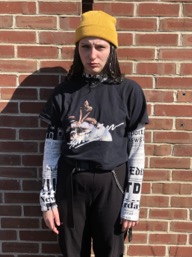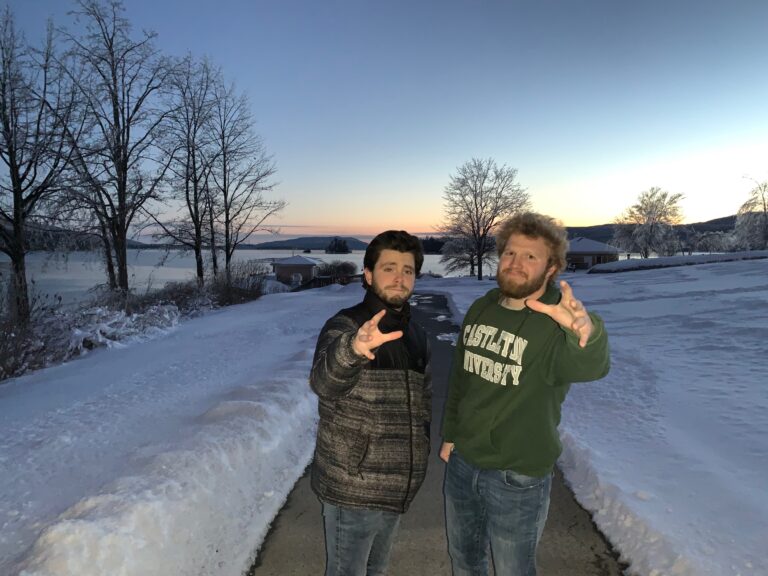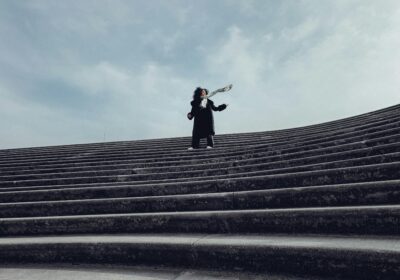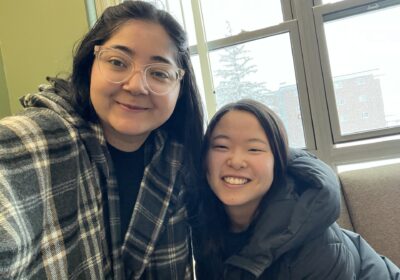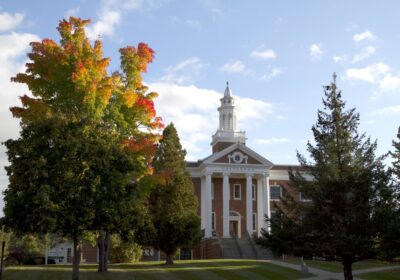Scolforo and Spartans shell-shocked
Castleton University president, faculty and students deal with unwanted transition to online classes and postponement of graduation amid COVID-19 spread.
According to dictionary.com, the word “unprecedented” dates back to the year 1641, when House of Commons Speaker John Finch used the word in a speech in support of King Charles I.
Fast-forward to 2020, when unprecedented times call for unprecedented measures.
As of Tuesday, March 24, Castleton University transitioned to virtual learning and graduation was postponed a year.
It’s a decision that truly pains President Karen Scolforo.
“My hardest part is my commitment to the student experience,” Scolforo said via phone call Wednesday morning. “I want our students to have a wonderful, memorable experience here at Castleton.”
You could sense the pain and sorrow in President Scolforo’s voice and tone when she spoke over the phone or wrote an email to the Castleton community. This decision was not ideal.
“Our hands were forced by the governor’s directive,” she said.
With around 2,500 students enrolled at the “small university with a big heart,” only 100 remained on-campus earlier this week, and 18 on the Killington campus. According to Scolforo, 38 students returned on-campus Tuesday night to retrieve their personal items from the dorms. Emails from Scolforo and Vermont State Colleges Chancellor Jeb Spaulding discussed the need for on-campus students to move all of their belongings out of the dorms by March 30.
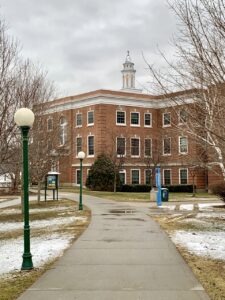
In her two years thus far at Castleton, Scolforo has displayed a profound love for the campus and the students, portrayed by pictures of the environment and her personal attendance at athletic events and artistic and musical exhibitions.
“I LIVE for the performances at the Fine Arts Center and athletics,” said Scolforo with enthusiasm leaping out of her voice.
These performances bring a surge of energy to the campus, as students come together to celebrate and relish in the joys and successes of their classmates.
However, COVID-19 has halted mass gatherings across the globe, leading to the conclusion of the athletic and artistic careers of seniors at Castleton. Scolforo expressed empathy for the senior class that will miss out on their final two months of the college experience at CU.
“There’s no replacing that,” Scolforo said. “I can’t even put myself in the category of our students, especially our seniors.”
It’s a difficult transition for seniors Christine McSweeney and Will Mossop. A couple since the spring of their sophomore year, McSweeney and Mossop were disappointed, yet understanding of the system-wide decision made by the VSC Board.
“We don’t want to be that one school that stays open,” McSweeney said. “But, it doesn’t make it any less heart-breaking.”
McSweeney, an athletic training major and president of the Athletic Training Club at Castleton, is from Warwick, New York. She has already been accepted to Dominican College to pursue a doctorate in physical therapy.
She was looking forward to “re-enacting” graduation pictures with Mossop like her older brother Michael did in 2011 with his college sweetheart, and now wife, Ashley.
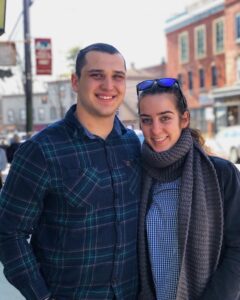
Unfortunately for McSweeney and Mossop, this won’t happen.
“It was definitely something I was looking forward to, kinda maybe remaking their photos and seeing really how different it would be nine years later,” McSweeney said. “So it’s kinda hard being from a Castleton alumni family, not having that Castleton graduation the same year it’s expected to be, of course.”
McSweeney and her family have already made it clear they plan to attend the postponed commencement ceremony in the Spring of 2021.
Mossop is an exercise science major from Bethel, Connecticut, but plans to take a different career path than what he studied at Castleton. He has already served in a seasonal role as a police officer in Ocean City, Maryland in the Summer of 2019, and looks to return there in a full-time position.
Mossop is forever grateful for the bonds and memories he’s made with his fellow students, teammates from the football team and mentors over the course of his four years as a Spartan.
“I liked being able to have a personal relationship with the professors, and I felt like I learned a lot in my experience that I can transfer to many different applications… and obviously, I met my girlfriend here, so that was very important too,” said Mossop, who received a wink from a smiling McSweeney sitting across from him.
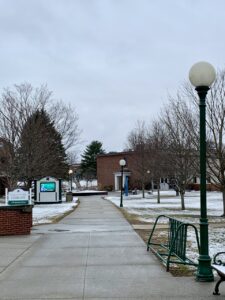
Although the campus is quiet, fewer students does not equate to less responsibility for Scolforo.
This transition has actually made her schedule even busier than before. After dropping her beloved dogs off at Happy Paws daycare in Castleton before 7 a.m., Scolforo is heavily involved in meetings with her cabinet until 6 p.m. Even after that, she is working closely with her associates deep into the night before starting the cycle over again into the next day.
Staying positive and spreading positivity has been a challenge that Scolforo said she has made every effort to live up to.
“We have to remember that we are all in this together. These are unprecedented circumstances and, in some ways, we will learn as we go, but the key is to stay alert, be willing to adapt, and place safety and security at the forefront of our work,” Scolforo said. “Higher education is what we do, and I am proud of our committed faculty and staff. I am confident our students will feel the high level of commitment and support we have to offer them.”
COVID-19 has changed the way humans interact on a daily basis. For numerous individuals, it has interrupted routines and forced adaptation during the confusing time.
Professor Rich Clark is coordinator of the political science program, and has admitted COVID-19 is unlike any health scare he’s seen before.
“Considering other health scares, AIDS, Ebola and measles, this pandemic is like no other. Its scale is more massive, and broad reaching than anything we’ve seen before. In terms of other national emergencies of the past century, this knows no equal. Unlike the attacks of 9/11, we saw this one coming. 9/11 took the nation by surprise and changed the way we thought of security for two decades, but this event was predictable, even as the means to avoid it were not immediately accessible,” Clark said via email. “It was like watching a slow moving tsunami arrive on a village without sufficient preparation for such a disaster, figuring out who can be moved to higher land and who might shelter in place.”
This time of uncertainty has been filled with adjustments to the way educators practice and pass their teachings to their students. Clark says virtual learning is not the direction he wanted to go in, but understands it’s the only option.
“I never wanted to teach online, and many of my students have expressed that they never wanted to be online students. But here we are, and everyone seems to be making the best of it,” Clark stated. “I am very concerned about some students, and I’ve sent out several emails to which I hope to receive a response. I miss the face-to-face interactions. But, last week, my colleagues and I spent a lot of time learning to manage the tools that the University has provided to continue instruction in our courses in a new environment.”
Adapting and overcoming adversity.
Making the most out of an unwanted and unprecedented situation.
Doing all of this while following the Castleton Way.
“This movement, this global pandemic will have a lasting impression,” Scolforo said emphatically. “At times like this, I think it turns a spotlight to all that Castleton has to offer.”

